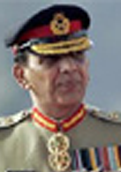Terrorist Attacks: How Long Should India just Wring its Hand in Despair?
There is a need to conclusively revisit the issue of India’s response, and other pro-active measures, to deter and forestall terrorist attacks in future.
- P. K. Upadhyay
- July 15, 2011












